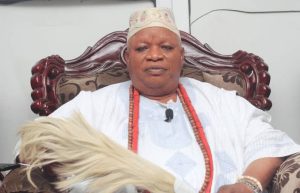Sheikh Imran proposes public whipping as punishment for corrupt leaders

Subair Mohammed
A renowned Islamic scholar, Sheikh Abdul Majeed Imran Eleha has suggested public flogging as punishment for corrupt leaders and politicians in the country.
According to him, openly flogging corrupt public officers and leaders in the presence of their loved ones would serve as a deterrent to others who might be considering looting the nation’s treasury as an option.
Sheikh Imran who is the Mudir of Dar-ul-Naim Islamic Institute, Isheri-Olofin, Lagos made this proposition at the monthly “Moral Clinic”, a lecture series organised by the Faith Unites Muslims Charity Initiative (FUMCI) and held at the secretariat of the group recently in Lagos.
At the lecture titled “Responsibilities of a Leader and followers in Islam”, Sheikh Imran asserts that Islam has a clear-cut stance on leadership reason it has an established procedure for the selection of a leader.
Supporting his statement, he stated that “The Prophet (saw) said it is not ideal for three persons to go on a voyage without appointing one out of them as a leader (Amir, Khalifah, Wali, Imam) to coordinate the activities of the group.
He said, “Leadership in Islam is not to be taken lightly and cannot be overemphasised. When Prophet Muhammad (saw) died; his remains were left unattended to for three days, why? There were no leaders to neither command the commencement of his burial rites nor perform his Janazah.
Meanwhile, after series of deliberations and consultations which lasted for three days and nights, a Khalifah was appointed after which the prophet was buried”.
Further in his lecture, Sheikh Imran identifies four ways which a leader could emerge in Islam.
According to him, should a leader emerged through any of these means, his followers must accord all respect, benefits and rights that is due to him as long as he occupies the seat.
“A leader could emerge through divine appointment by Allah. An example of such was the emergence of Prophet Muhammad (saw) who was sent by Allah to preach Islam to the people of Makkah but through the collective will of the people of Makkah became both religious and political leader in Madinah.
Another means by which a leader could emerge is through an appointment by eminent personalities and people of substance in the community. With this means, a group of eminent people would come together to select someone to become a leader.
For example, after the death of Prophet Muhammad, the Makkans and the people of Madina were deliberating on whom to select as the successor of the Prophet (saw).
“After days of unfruitful efforts towards the selection of a leader, Umar called on Abu Bakr to mount the throne of leadership because in his estimation, during the life time of the Prophet (saw), he appoints Abu Bakr to lead other Muslims in prayers.
Following the adoption of Abu Bakr by Umar, other eminent personalities supported his choice and that was how Abu Bakr became the Khalifah of all Muslims.
The appointment of a leader could also be through the adoption or pronouncement of a successor by an incumbent leader. This technique was the approach used by Abu Bakr when he invited all the companions and inform them of his preference for Umar as his successor after his demise.
Lastly, a leader could emerge through a military coup or violence like the case of Muawiyyah” he highlighted.
Regardless of any of the four means stated above, Sheikh Imran reasoned, the number one responsibility of the followers to a leader is to adhere strictly to the commandment of the leader without questioning his competence and authority.
He added, “While a leader must uphold the principle of justice and equity in dealing with his followers, followers on their part must continuously pray for the success of their leader and desist from raining cursing or talking ills about him as doing this could debar his successful stay in office and by extension could retard societal progress.
Further, a leader must be filled with the fear of Allah in exerting power and authority on his followers just as followers too must have absolute patience with him in all his deeds.
However, there is a limit to the adherence of the followers to the command of a leader. Once the actions of a leader are in conflict with the dictate of Allah (swt) and the Sunnah of the Prophet, then followers need not hesitate to disobey such leader and dethrone him.
“During the reign of Khalifah Umar (ra), an indigent boy came to report a case of injustice melted on him by a son of a Governor in Egypt during an horse racing tournament.
However, after a thorough investigation into what transpired between the two, Khalifah Umar discovered that the Governor’s son has erred and he ordered the poor boy to beat him with horse whip while he later beat the Governor for his failure to properly train his son with good morals.
“From this end, Islam has the best examples in terms of leader follower relationship. I want to suggest to the Government that rather than wasting time and resources prosecuting erring public office holders and corrupt leaders, public flogging in the presence of their loved one and associates is enough as punishment. Endless prosecution is not necessary but once a public office holder sees that should he engage in any form of corruption, his punishment would be a live telecast of his whipping by solders in the presence of his wife, children and friends and associates, they would desist from the monstrous and inhuman acts”.
Views: 0






